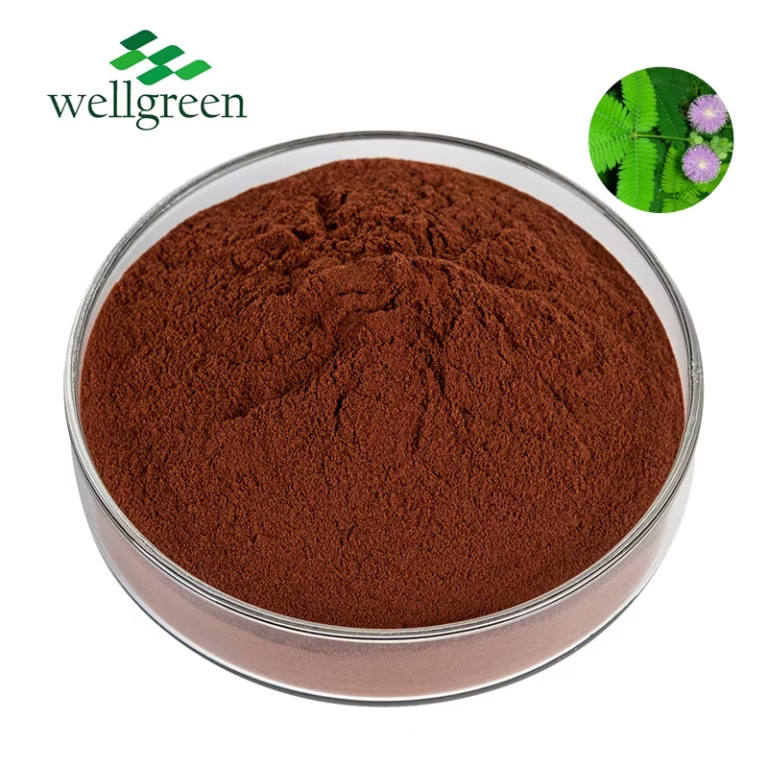
The branches of this Amazonian plant, commonly known as quebracho blanco, have been employed for generations in indigenous medicine across the Americas.
Ethnobotanical studies highlight the power of M. tenuiflora extracts in treating a wide range of ailments, including inflammation.
Traditional healers employ the root bark in diverse forms such as powders to treat symptoms.
Some key uses of M. tenuiflora include antimicrobial activity, and it is also regarded to possess sedative properties.
An Examination of Mimosa tenuiflora Root Bark Extracts
This study focuses on evaluating the phytochemical content of Mimosa tenuiflora root bark extracts. The procurement methods employed involved diverse solvents, including ethanol. The resultant extracts were then subjected to a battery of analytical methods such as gas chromatography-mass spectrometry (GC-MS) to identify the predominant phytochemical molecules. Preliminary results reveal the occurrence of a range of secondary metabolites, including terpenoids, which are known for their pharmacological properties. This comprehensive phytochemical analysis aims to provide valuable insights into the potential of Mimosa tenuiflora root bark as a source of natural remedies.
Ancient Uses and Potential Medicinal Benefits of M. tenuiflora Root Bark
M. tenuiflora, a species renowned for its distinctive root bark, has been employed in traditional medicinal practices for centuries. Indigenous tribes have long recognized the therapeutic properties of this valuable resource. The root bark is customarily prepared and consumed to address a range of ailments, including inflammatory conditions.
Contemporary research is commencing to uncover the potential of M. tenuiflora root bark in offering medicinal benefits. Studies have indicated that certain elements present in the bark may possess antiviral properties, affecting its potential to neutralize a wide array of diseases. Additionally, preliminary research suggests that M. tenuiflora root bark may also possess brain-boosting effects, though more comprehensive studies are essential to substantiate these findings.
Pharmacological Activity of Mimosa tenuiflora: A Review of Root Bark Studies
Mimosa tenuiflora, commonly known the jurema shrub, has a extensive history of traditional medicinal practice in South America. The root bark of this variety is particularly recognized for its diverse pharmacological properties. Numerous studies have explored the potential benefits of M. tenuiflora root bark, revealing a range of constituents with noteworthy biological influence.
- One domain of particular focus is the anti-inflammatory efficacy of M. tenuiflora root bark extracts.
- Preliminary findings suggests that these extracts may regulate the immune response, potentially providing alleviation from multiple inflammatory conditions.
- Moreover, studies have indicated that M. tenuiflora root bark may possess free radical scavenging properties, which could contribute to human health by reducing oxidative stress.
The diverse nature of M. tenuiflora root bark ingredients and its possibilities for therapeutic applications warrant further exploration. As research progresses, a more comprehensive understanding of the pharmacological properties of M. tenuiflora root bark may emerge, potentially leading to the development of novel and effective medicinal interventions.
Procurement and Identification of Bioactive Molecules from *M. tenuiflora* Root Bark
This research focuses on the extraction of bioactive molecules from the root bark of *M. tenuiflora*. Multiple extraction methods, such as organic liquids, will be employed to obtain a variety of extracts. The analysis of these extracts will involve methods like spectroscopy and molecular characterization. The biological effects of the isolated molecules will also be assessed using in vitro systems.
This project seeks to identify and characterize effective substances from *M. tenuiflora* root bark with potential benefits in medicine.
Delving into the Anti-inflammatory and Antioxidant Properties of Mimosa tenuiflora Root Bark
Mimosa tenuiflora, commonly known as the Horse tree, is a species native to south american regions. Recent research has focused on its {potentialapplications for human health, read more particularly concerning its anti-inflammatory and radical mitigating properties. The root bark of Mimosa tenuiflora is a rich reservoir of bioactive compounds such as alkaloids, which have been shown to exert potent influences against oxidative stress.
- Studies have demonstrated that extracts from Mimosa tenuiflora root bark can significantly reduce the production of inflammatory molecules in both *in vitro* and *in vivo* models.
- Additionally, these extracts have exhibited notable antioxidant effects by eliminating harmful free radicals, protecting cells from dysfunction.
These findings suggest that Mimosa tenuiflora root bark holds promise as a {naturalsupplement for various inflammatory and oxidative stress-related conditions. However, further research is needed to fully elucidate its mechanisms of action and optimize its therapeutic potential.
